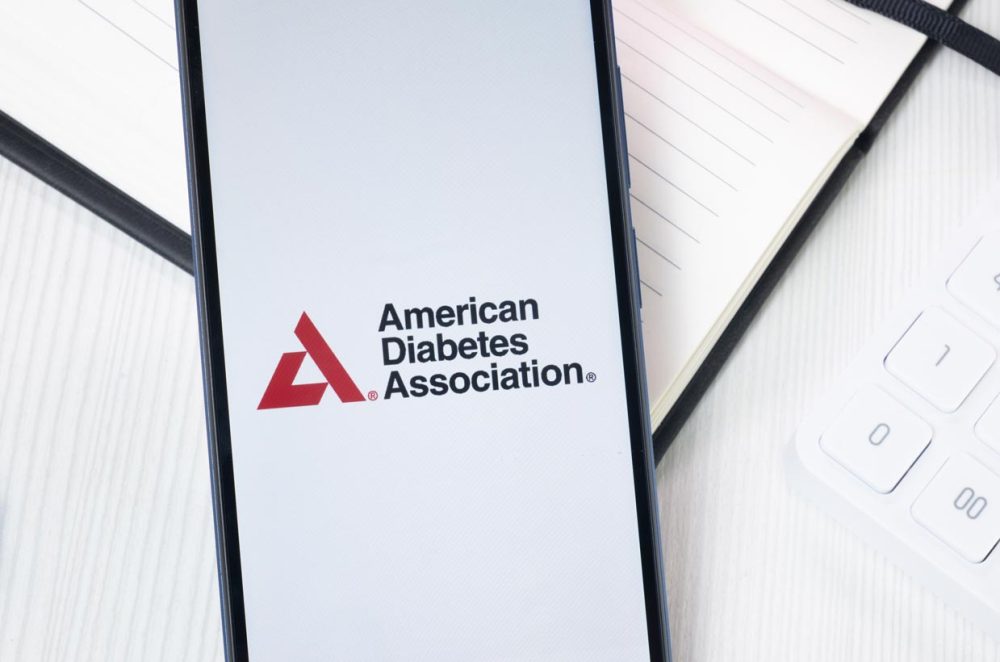Advertisment
Abbott and the American Diabetes Association collaborate to drive a better understanding of the role of nutrition formulas to support people with diabetes and obesity

The American Diabetes Association® (ADA) and Abbott recently announced a collaboration to better understand the nutritional needs of people living with diabetes, obesity, and metabolic dysfunction and how nutrition formulas can support those needs and overall health.
More than 2 in 5 adults in the U.S. are living with obesity and approximately 1 in 10 Americans are living with diabetes, most of which is type 2 diabetes.1,2 They may have nutritional deficiencies that go undiagnosed, which can have implications on their overall health. Adequate nutrition and nutrition support have shown to improve health outcomes.3,4 For example, research shows that diabetes-specific nutrition formulas can support glycemic management.5 Through the collaboration, the ADA will review and consolidate the latest evidence to help health care professionals understand the unique nutritional needs associated with diabetes, obesity and metabolic dysfunction, as well as the role nutrition formulas can have on health.
”Better understanding nutritional needs will help health care professionals support their patients and get ahead of nutritional problems,” said Charles “Chuck” Henderson, chief executive officer of the ADA. ”This collaboration with Abbott aims to bridge the gap in practical nutrition guidance, addressing the specific malnutrition challenges faced by people with diabetes, which aligns with the ADA’s mission to improve the lives of people impacted by diabetes as well as the work of our newly formed Obesity Association to reduce the prevalence of obesity.”
Last year, the ADA and Abbott announced a collaboration aimed at better understanding how diabetes technology like continuous glucose monitoring (CGM) systems can help people living with diabetes make informed decisions about their food and activity. This new collaboration builds on the commitment to support people with diabetes—and extends support to those with obesity as well. Abbott will provide a $1.6 million grant over the next three years to the ADA to enable them to:
- Engage and convene top health care experts to discuss and evaluate nutritional support for people with diabetes, obesity, and metabolic dysfunction.
- Gather, review, and synthesize the latest scientific evidence on the nutritional needs of people with diabetes, obesity, and metabolic dysfunction and how nutrition formulas can address nutritional needs.
- Incorporate their findings into publications in peer-reviewed journals, the ADA Scholars Program, and health care professional education.
“Abbott and the ADA are both science-based organizations with a long history in research, education, and helping people live healthier lives,” said Joe Manning, executive vice president for Abbott’s nutrition business. “We look forward to working with the ADA to help equip health care professionals with nutrition resources and information to support people living with diabetes and obesity.”
About the American Diabetes Association:
The American Diabetes Association (ADA) is the nation’s leading voluntary health organization fighting to bend the curve on the diabetes epidemic and help people living with diabetes thrive. For 84 years, the ADA has driven discovery and research to treat, manage, and prevent diabetes while working relentlessly for a cure. Through advocacy, program development, and education we aim to improve the quality of life for the 136 million Americans living with diabetes or prediabetes. Diabetes has brought us together. What we do next will make us Connected for Life®. To learn more or to get involved, visit us at diabetes.org or call 1-800-DIABETES (1-800-342-2383). Join the fight with us on Facebook (American Diabetes Association), Spanish Facebook (Asociación Americana de la Diabetes), LinkedIn (American Diabetes Association), X (@AmDiabetesAssn), and Instagram (@AmDiabetesAssn).
About Abbott:
Abbott is a global healthcare leader that helps people live more fully at all stages of life. Our portfolio of life-changing technologies spans the spectrum of healthcare, with leading businesses and products in diagnostics, medical devices, nutritionals and branded generic medicines. Our 114,000 colleagues serve people in more than 160 countries.
1. Center for Disease Control. Obesity. Adult Obesity Facts.
2. Center for Disease Control. Diabetes. About Type 2 Diabetes.
3. Cawood AL, et al. Ageing Res Rev. 2023 Jul;88:101953.
4. Sulo S, et al. Am Health Drug Benefits. 2017 Jul;10(5):262-270.
5. Ojo O, et al. Nutrients. 2019 Aug;11(8):1905.





